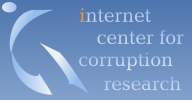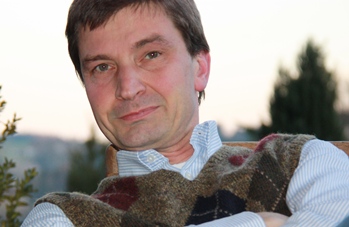
| Home → Lecture and Workshops → 2016 Passau |  |
|
|
The 2016 Economics of Corruption will focus on experimental and behavioral approaches to corruption and governance.
Findings from the lab and the field are surveyed and confronted with theory and models for anticorruption.
Interactive tools such as games, presentations and case studies involve participants
and make them acquainted with today's challenges.
Prof. Johann Graf Lambsdorff and his team have spearheaded a behavioral approach to reform, embracing as divert
issues as contract penalties, compliance systems, debarment, intermediaries, procurement, leniency and corporate liability.
Participants are introduced into this body of research.
They work in groups to develop and implement their own experiments related to anticorruption and discuss their findings.
PhD-students are invited to present their research (15 min. presentation + 5 min. discussion).
There are no tuition fees. The course is directed towards PhD and Master-students in the social sciences (political science, law, economics, business administration, sociology, psychology) who are applying experimental methods in their respective fields and are willing to exchange ideas across disciplinary boundaries. |
Time: October 9-16, 2016
Program: A final program is available here. The schedule of presentations by the various PhD-students will be made available here.
Three guest presentations complement the program:
1) Prof. Dr. Uri Gneezy, Chair in Behavioral Economics, University of California San Diego. "Incentives and Immoral Behavior."
2) Dr. David Hawkes, Head, Special Litigation Unit, World Bank Group, "Accountability and Deterrence as Instruments of Improved Governance."
3) Prof. Dr. Nora Szech, Chair of Political Economy, Karlsruhe Institute of Technology "Pleasures of Skill and Moral Conduct."
Apart from these guest presentations the event consists of lectures, case studies, group discussion and games. The course is restricted to successful applicants (information see below).
For registration please send an email to Stefanie Aicher .
Venue: University of Passau, Germany
Requirements: PhD-students and advanced scholars are invited to present their research. While studies from the field and the laboratory are most welcome, we also accept research on survey work and applied theory.
Prospective participants must apply by completing the application form. Please send your application to Stefanie Aicher .
Applications will be screened on the academic background, motivation and, if submitted, the quality of the research. No limits are put on methodology or academic disciplines.
While participation is free of charge, we do not provide funding for travel or lodging. Course material will be made available online. 30 EUR will be collected to cover expenses for two evening events and the games.
Exam: A final exam is offered on October 21, 2016. Two tutorials will be offered in advance to the exam. Master-Students receive 5 ECTS credit points, based on a memo that describes the group's research findings (30%) and the exam (70%).
Accommodation: The City of Passau provides all ranges of accommodation. A list of selected hotels including prices and contact information is available here (Excel-File). You may also go the webpages of the Passau Tourist Information. Participants are asked to arrange accommodation on their own.
|
- Lambsdorff, J. Graf (2007) The New Institutional Economics of Corruption and Reform: Theory, Evidence and Policy. Cambridge University Press
- Lambsdorff, J. Graf (2009), The Organization of Anticorruption - Getting Incentives Right. In: Corruption, Global Security, and World Order, ed. by R. Rotberg, (The Brookings Institution Press: Washington, D.C., 2009): 389-415.
- Serra, D. and L. Wantchekon (2012) New Advances in Experimental Research on Corruption, Research in Experimental Economics volume 15, Emerald Group Publishing.
- Lambsdorff, J. Graf (2015), Preventing Corruption by Promoting Trust – Insights from Behavioral Science. University of Passau, Version: Diskussionsbeitrag Nr. V - 69 - 15


